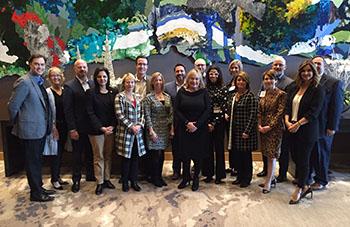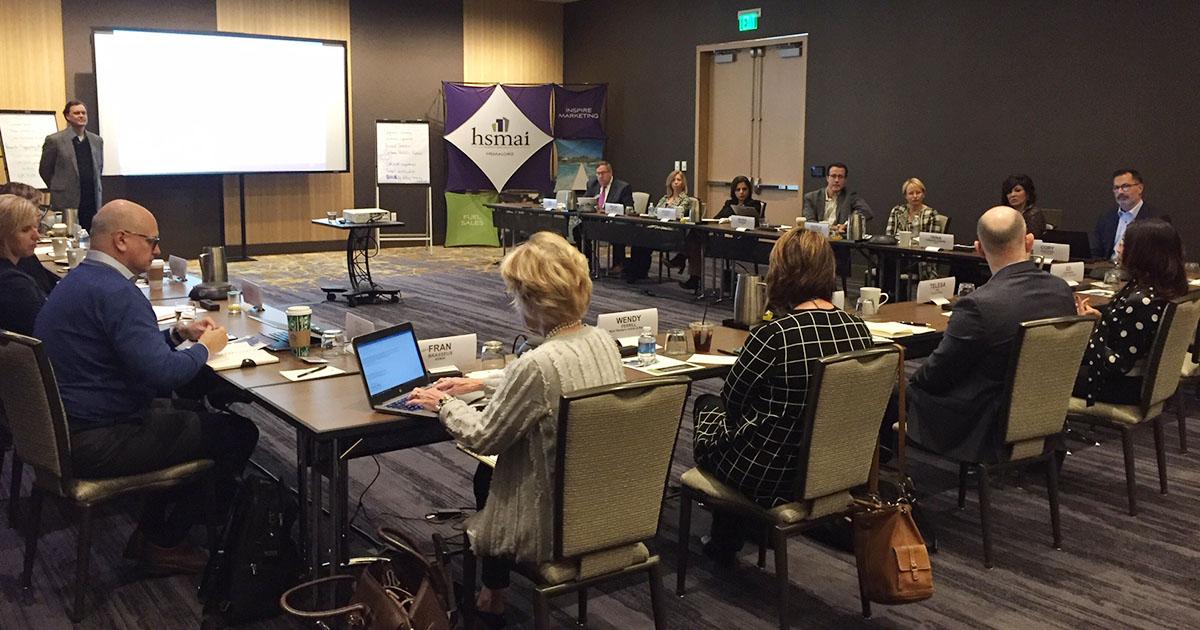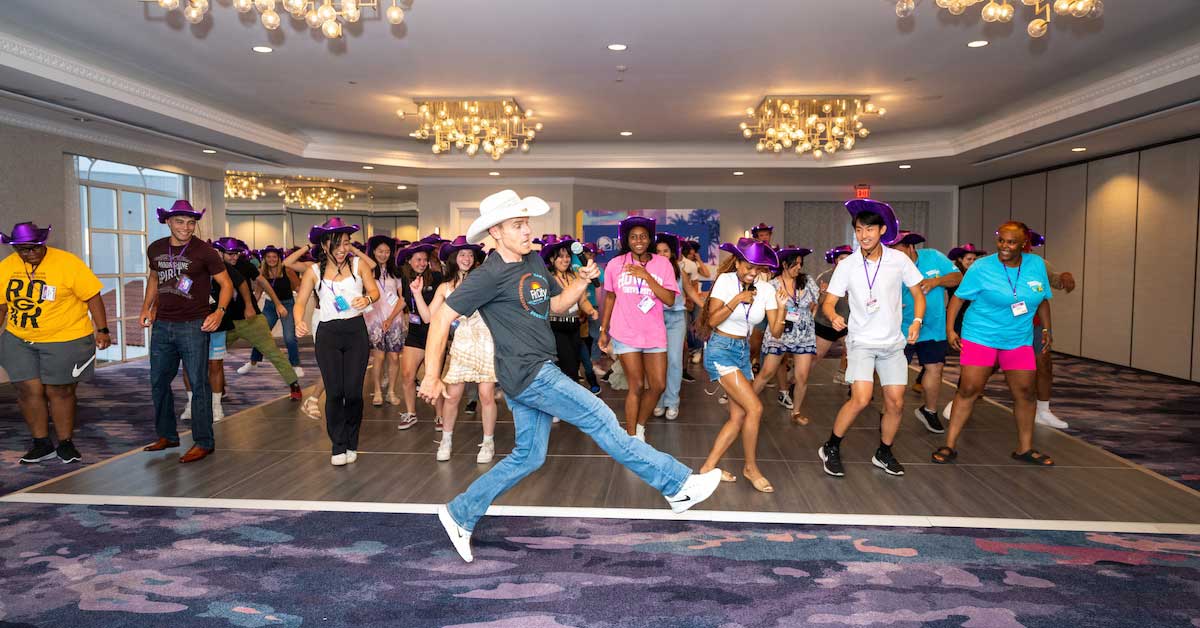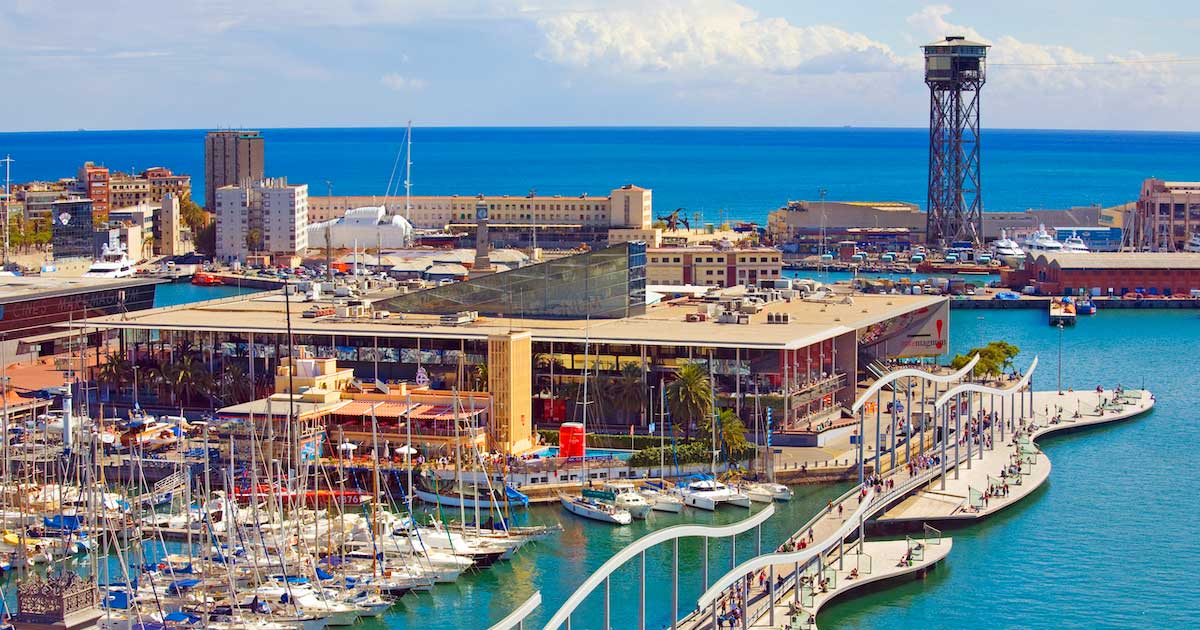Chief sales officers from14 hotel groups representing more than 22,000 hotels globally put competition aside for a day and discovered they have much in common when it comes to dealing with industry issues.
The 16 leaders, from hotel groups ranging in size from 24 properties to more than 5,000, met Thursday at the MGM National Harbor as part of an annual event hosted by Hospitality Sales and Marketing Association International (HSMAI).
 The daylong agenda included sessions about sales leadership and analytics, building trust and benchmarking and trends for defending sales budgets. The group also participated in a partner insights session led by Jamieson Asselta, director of sales at Northeast IDeaS; Tim Hart, CEO at Knowland; and Dan Berger, founder and CEO at Social Tables.
The daylong agenda included sessions about sales leadership and analytics, building trust and benchmarking and trends for defending sales budgets. The group also participated in a partner insights session led by Jamieson Asselta, director of sales at Northeast IDeaS; Tim Hart, CEO at Knowland; and Dan Berger, founder and CEO at Social Tables.
The group set strict rules of engagement to avoid any antitrust issues, said Bob Gilbert, president and CEO of HSMAI. He said the goal of the event was to provide a non-competitive environment for the senior executives to talk openly about their successes and challenges, and to learn from other thought leaders.
Miriam Santos, senior director for worldwide sales at Best Western Hotels & Resorts, attended the annual gathering for the first time.
“From my perspective it was a great forum, a great environment to be able to speak with other executives and leaders from within the industry and understand what they’re facing,” she said. “It’s interesting to see the common threads no matter what the brand, to see that we’re all experiencing the same issues. It was validating.”
The event was a private affair, but The Meeting Professional had exclusive access to the group at the end of their session where the sales leaders shared insight on a range of issues. For example, the sales leaders are fully aware of the need for more experiential aspects from their properties to add value for group meetings.
“We had a roundtable with customers and people are really looking for something new and different kinds of spaces they can interact in,” said Meenaz Lilani, senior vice president for global sales in North and Central America for AccorHotels. “They want flexibility, they want different, and they don’t want to pay more for it necessarily.”
She shared examples of unique space at Fairmont The Queen Elizabeth in Montreal, which has more traditional meeting space on one floor, but C2-inpired space on another floor. She also talked about a unique brand owned by AccorHotels, the 21c, an art museum boutique property in eight locations.
“What’s interesting is how many of our corporate clients know this brand really well,” she said. “The reason is when they’re looking for new and different spaces, they’re finding them in a brand like 21c, which has an authentic museum and wonderful restaurants. It’s very much in their DNA; they’re not cookie cutter. It’s something that is genuine and comes from the passion of the owners who created this.”
The sales leaders acknowledged how food and beverage and other unique offerings are helping create experiences for both group and leisure business.
Telesa Via, vice president of sales at Kimpton Hotel Group, said her organization has hired directors of music and bars along with offering experiences with chefs.
“We want to make sure we’re executing what we say we will,” she said. “The experiential home or centerpiece is very important to us and balancing that with technology, whether it’s checking in at the front desk or a salesperson that’s having to sell it. We’re finding it across the boutique space and we have to differentiate ourselves now. We can’t be cookie cutter.”
Lilani agreed on the impact of experiential F&B.
“People are hungry for it, no pun intended,” she said. “They’re hungry for something that is going to feed their soul in a different way. A lot of this is fueled by people watching all the television shows about food. Even I’m taking up cooking and I wouldn’t even boil an egg before.”
The group shied away from discussing the cutting of commissions for independent and third-party planners from 10 percent to 7 percent. Hyatt, Marriott, IHG and Hilton all announced the move this year. The group did ask questions about impact, which will become more definitive in 2019.
Other issues that were raised included concerns about consolidation and future economic trends.
“(Consolidation) affects all the players in the industry in different ways,” said Ed Skapinok, senior vice president of marketing and revenue at Aqua-Aston Hospitality. “There’s consolidation of hospitality companies, but there’s also consolidation of service providers we use, and I think that has impact on meeting planners. We’re at a point right now where just the forces that are in the play and the need to adapt to a new way of doing business, well, it’s really a transformative time. There’s always a little trepidation there, but one of the takeaways I had [from Thursday’s sessions] was that there is investment in new technology and the core fundamentals, the buyer-seller relationship and relationship management, those things don’t change. “
The hotel groups in attendance included Extended Stay America, Hyatt, Loews Hotels & Co., InterContinental Hotels Group, Best Western Hotels & Resorts, Radisson Hotels, AccorHotels, RLH Corp., Hilton, Red Roof Inn, Associated Luxury Hotels International, Drury Hotels, Aqua-Aston Hospitality and Kimpton Hotel Group.
Hotel Leaders Discuss Unique Spaces, F&B and Consolidation at Annual HSMAI Event
Chief sales officers from14 hotel groups representing more than 22,000 hotels globally put competition aside for a day and discovered they have much in common when it comes to dealing with industry issues.
November 30, 2018

ADVERTISEMENT
ADVERTISEMENT
YOU MAY ALSO LIKE
Shared creation at events builds trust, breaks down silos and fosters a sense of belonging, according to Marsha Sharpe, EVP of SongDivision.
Wellness expert Angela Minardi of Fit City Adventures discusses connecting in meaningful ways at events and some of the exciting wellness activations she’s bringing to MPI’s World Education Congress (June 2-4 in San Antonio), from puppy yoga to a sound bath to a meditation station.
A short voyage through Barcelona’s Port Vell and the surrounding marina area during an MPI EMEC learning journey revealed the ways that this historic city has adapted its traditional harbour to support modern priorities.
If you want your event to be remembered, make sure delegates aren’t distracted, says Bogdan Manta, organisational neuroscientist and MPI European Meetings & Events Conference plenary speaker.
Meet John Kirby (MPI Kansas City Chapter) director of customer relationships for Encore, recognized as MPI’s Volunteer of the Month for February 2026.

.jpg?sfvrsn=96553155_1)




